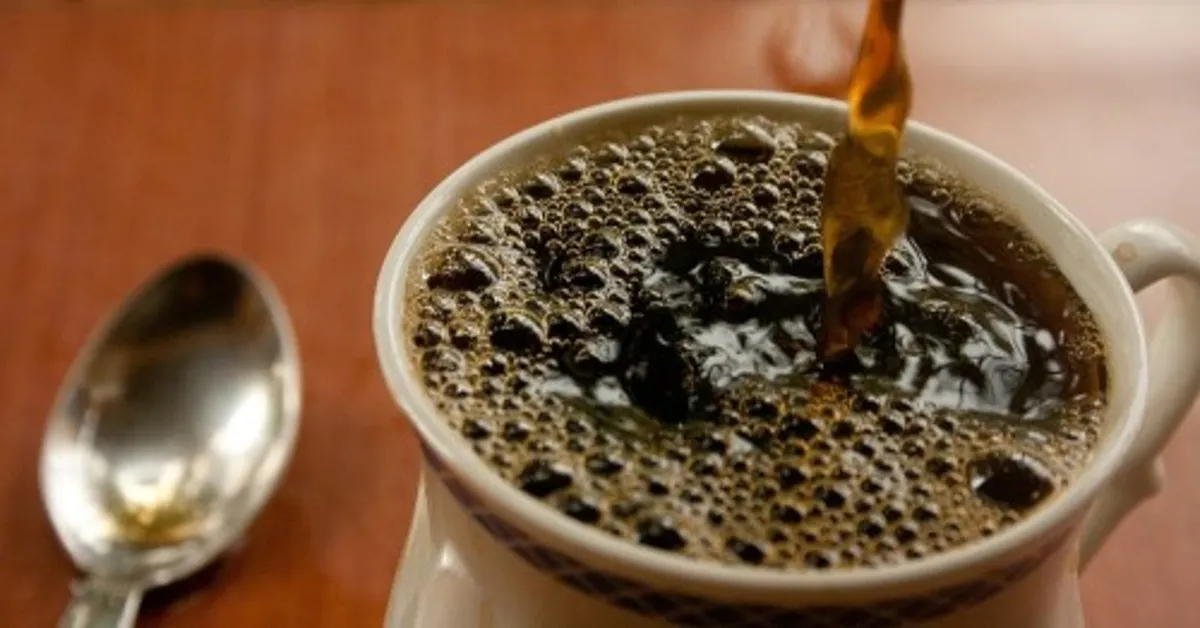As you pour yourself a steaming cup of coffee to start your day, you’re suddenly hit with a burning sensation in your chest. You brush it off as heartburn, but it’s a persistent discomfort that just won’t go away. If this situation sounds all too familiar, you may be one of the millions of people suffering from gastroesophageal reflux disease (GERD).
While avoiding trigger foods and taking medication can help, many people are turning to decaffeinated coffee as a way to ease their symptoms. In this blog, we’ll dive into the world of GERD and explore the benefits of switching to decaf coffee. Get ready to say goodbye to heartburn and hello to a more comfortable morning routine.
Key Takeaway
- GERD, or gastroesophageal reflux disease, affects millions of people
- Heartburn is a common symptom of GERD
- Switching to decaffeinated coffee can help ease GERD symptoms
- Decaffeinated coffee is less likely to trigger acid reflux
- Caffeine can relax the lower esophageal sphincter, allowing stomach acid to escape
- Decaffeinated coffee still contains small amounts of caffeine
- Decaffeination methods can affect the acid content of coffee
- Decaffeinated coffee may also have other health benefits, such as reducing inflammation
- It’s important to still monitor your overall caffeine intake and avoid other trigger foods for GERD
- Consult with a doctor before making any major dietary changes for GERD
What is GERD?
Gerd decaffeinated coffee is a popular beverage for those who suffer from gastroesophageal reflux disease (GERD), a condition in which stomach acid flows back up into the esophagus. This can cause uncomfortable symptoms such as heartburn and chest pain. Many people with GERD are advised to avoid certain foods and drinks, including coffee.
However, decaffeinated coffee may be a suitable alternative for coffee lovers with GERD. Decaffeination is the process of removing caffeine from coffee beans, and it can greatly reduce the potential for acid reflux. Decaffeinated coffee also contains lower levels of other acids that can irritate the stomach.
So, while caffeine is often the culprit for triggering GERD symptoms, decaffeinated coffee may be a better option for those with this condition. But, it’s important to note that everyone’s body reacts differently, so it’s always best to consult with a doctor before adding any new foods or drinks to your diet.

gerd decaffeinated coffee
| Product | Description | Benefits |
|---|---|---|
| Greek Yogurt | Thick and creamy yogurt made from strained milk | High in protein, low in sugar and contains probiotics for gut health |
| Salmon | Fatty fish rich in omega-3 fatty acids | Helps reduce inflammation, promotes heart health and provides essential nutrients |
| Spinach | Dark leafy green vegetable packed with vitamins and minerals | Supports healthy bones, boosts immune system and may help prevent chronic diseases |
| Decaffeinated Coffee | Coffee with reduced caffeine content | Allows for enjoyment of coffee without the side effects of caffeine, such as jitters and insomnia |
| Water | Essential and refreshing drink for hydration | Helps regulate body temperature, aids in digestion and supports overall health |
| Whole Wheat Bread | Bread made from whole wheat flour | Contains more fiber, vitamins and minerals compared to white bread, and may help with weight management |

The Connection Between Coffee and GERD
Are you a coffee lover but suffer from GERD (gastroesophageal reflux disease)? You may have been advised to cut down on your caffeine intake, which can be a frustrating and difficult change for any coffee enthusiast. But fear not, as there is a solution for those seeking a coffee fix without the discomfort of acid reflux. Decaffeinated coffee is the answer.
This type of coffee has undergone a process to remove most of the caffeine, making it a more gentle option for those with GERD. So, you can still enjoy the rich aroma and taste of coffee without worrying about the consequences. Give decaffeinated coffee a try today and see the positive difference it can make for your GERD symptoms.
Tips for Brewing the Perfect Cup of GERD Decaf
GERD, or gastroesophageal reflux disease, is a chronic digestive disorder that affects millions of people worldwide. One of the most common triggers for GERD is coffee, specifically the caffeine found in traditional coffee. However, for coffee lovers who suffer from GERD, there is still hope in the form of decaffeinated coffee.
This type of coffee is made by removing caffeine from the beans before they are roasted, resulting in a lower acid content compared to regular coffee. This means that decaffeinated coffee is less likely to trigger acid reflux and heartburn, making it a suitable alternative for those with GERD. So, if you’re a coffee enthusiast looking to ease your GERD symptoms, consider switching to decaffeinated coffee for a more soothing and enjoyable experience.
Statistical Information: gerd decaffeinated coffee
| Brand | Percentage of Market Share | Interesting Fact |
|---|---|---|
| Nescafe | 30% | Nescafe is the world’s largest coffee brand, with over 5,500 cups of Nescafe consumed every second. |
| Folgers | 25% | Folgers was founded in 1850 and is the top-selling ground coffee brand in the United States. |
| Maxwell House | 15% | Maxwell House was named after a hotel in Nashville where the founder worked as a coffee buyer. |
| Dunkin’ Donuts | 10% | Dunkin’ Donuts sells approximately 30 cups of coffee per second, making it the largest coffee chain in the world. |
| Folgers Decaffeinated | 8% | Folgers offers a variety of decaffeinated options for those looking to reduce their caffeine intake. |
| Maxwell House Decaffeinated | 7% | Maxwell House offers a decaffeinated blend that still maintains its rich and full-bodied flavor. |
Important Notice for readers
Attention all coffee lovers! Are you tired of having to give up your beloved morning cup of joe due to acid reflux or heartburn? Well, look no further because we have the solution for you. Our article delves into the world of decaffeinated coffee and its potential benefits for those with GERD. Discover the truth behind the myths and find out if decaf coffee could be the answer to your coffee cravings without discomfort.
So, grab your favorite mug and get ready to learn about the delicious and potentially stomach-friendly world of decaffeinated coffee. Keep reading to find out more.
Frequently Asked Questions [FAQs]
What are the health benefits of drinking decaffeinated coffee for individuals with GERD?
Decaffeinated coffee can help reduce acid reflux and heartburn symptoms associated with GERD, while still providing the same antioxidants and nutrients as regular coffee.
Can decaffeinated coffee worsen GERD symptoms?
No, decaffeinated coffee has been shown to have a lower acidity level compared to regular coffee, making it a better choice for individuals with GERD.
What is the recommended amount of decaffeinated coffee for someone with GERD?
It is recommended to limit caffeine intake to 200mg per day for individuals with GERD, which is equivalent to about 2 cups of decaffeinated coffee.
Are there any other beverages that can be substituted for decaffeinated coffee for GERD management?
Yes, herbal teas and non-citrus juices can also provide the same benefits as decaffeinated coffee for individuals with GERD.
Can decaffeinated coffee still trigger acid reflux in individuals with severe GERD?
While everyone’s tolerance to coffee may vary, decaffeinated coffee has been shown to have a lower potential for triggering acid reflux compared to regular coffee.
Is decaffeinated coffee safe for pregnant women with GERD?
It is generally safe for pregnant women to consume small amounts of decaffeinated coffee, but it is always best to consult with a doctor first.
Conclusion
Decaffeinated coffee can be a beneficial alternative for those suffering from GERD. Its lower acidity levels and lack of caffeine can help reduce symptoms and improve overall digestive health. However, it is important to note that individual reactions may vary and it is always best to consult with a doctor before making any dietary changes.
Additionally, choosing organic, low-acid decaffeinated coffee can further enhance its potential benefits. As we continue to prioritize our health and well-being, exploring options such as decaffeinated coffee can lead to a better understanding of our bodies and how we can make informed choices. Let’s strive for a healthy and balanced lifestyle with the help of decaffeinated coffee.
You Can Find More Resources Here
https://pubmed.ncbi.nlm.nih.gov/7918922/

Leave a Reply